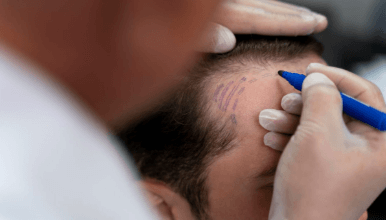What Patients Wish They Knew Before [1] Getting Eye Surgery
![What Patients Wish They Knew Before [1] Getting Eye Surgery](https://ivanaturfpmu.com/wp-content/uploads/2025/11/Screenshot-Capture-2025-11-07-05-53-55.png)
Eye surgery often promises clearer sight, enhanced appearance, or relief from long-standing problems. Yet, many patients enter the process with limited knowledge of what lies ahead. Surgeons explain risks and outcomes, but there are often unspoken details patients only realize afterward. Understanding these beforehand can lead to better decisions, reduced anxiety, and improved recovery experiences.
Many people who consider cosmetic surgery for the eyes believe it is a simple, straightforward procedure. However, the journey involves preparation, careful decision-making, and realistic expectations about results. The more informed a patient is, the smoother the process becomes.
Know the Range of Procedures
Patients often assume that all eye surgeries are the same. In reality, there are several categories, from corrective procedures like LASIK to medical interventions for cataracts or glaucoma. Then there are surgeries focused on aesthetics, which address drooping lids, puffiness, or tired appearances.
Each has different preparation requirements, risks, and healing timelines. A cataract removal differs greatly from blepharoplasty. LASIK involves reshaping the cornea, while eyelid surgery changes the skin and muscles around the eyes. A clear understanding of the chosen procedure prevents confusion and misplaced expectations.
Questions Patients Forget to Ask
Before agreeing to surgery, many patients focus on results but overlook essential questions. Commonly overlooked ones include:
- What will the recovery process look like?
- How soon can normal activities be resumed?
- What kind of scarring or redness should be expected?
- How many similar surgeries has the surgeon performed?
These questions often reveal crucial insights into both risks and realistic results. A surgeon’s answers can guide preparation and reduce post-surgery surprises.
The Role of Lifestyle Adjustments
A successful outcome often depends on small lifestyle changes before and after surgery. Patients are usually asked to avoid smoking, alcohol, or certain medications. Afterward, activities like swimming, heavy exercise, or even wearing eye makeup might be restricted for weeks. Ignoring these rules can slow recovery or cause complications. Awareness of these adjustments ensures that patients plan their schedules in advance, minimizing disruptions to daily life.
Choosing the Right Surgeon Matters
Skill and experience directly impact results. While technology plays a role, the expertise of the surgeon determines safety and outcome quality. Patients who research credentials, success rates, and reviews are better positioned to make informed choices. It is important to verify certifications and specialization. A general surgeon may not have the same expertise in delicate procedures involving the eyes. A dedicated ophthalmologist or oculoplastic surgeon often offers more precision and knowledge.
The Recovery Is Longer Than Expected
Many assume recovery is quick. In truth, healing can take weeks or even months. Vision may fluctuate during this period, and appearance changes evolve gradually. For cosmetic procedures, the final look may not be clear until swelling fully resolves. Patience is vital. Rushing into daily routines or exposing the eyes to strain can delay recovery. Realistic expectations help patients accept the process as part of healing.
Costs Extend Beyond the Surgery
Patients sometimes focus only on the upfront cost. However, additional expenses such as follow-up visits, medications, or specialized care can add up. Insurance may cover medical procedures like cataract removal, but aesthetic surgeries often remain out-of-pocket expenses. Budgeting for these extra costs avoids financial stress. A clear discussion with the clinic about the full scope of expenses helps patients prepare in advance.
Common Misconceptions About Results
Many patients believe surgery guarantees perfection. While outcomes are often dramatic, they may not eliminate every concern. For example, LASIK eye surgery reduces dependency on glasses but does not always remove the need entirely. Eyelid surgery can refresh appearance, but may not stop the natural aging process. Clear communication with the surgeon about realistic outcomes reduces disappointment. Success is defined by improvement, not perfection.
Small Habits That Support Healing
Recovery is not only about medical care. Simple habits can speed healing:
- Staying hydrated
- Using prescribed eye drops as directed
- Resting adequately
- Avoiding excessive screen time
- Wearing protective eyewear outdoors
These practices protect the delicate healing process and improve comfort during recovery.
The Value of Second Opinions
Patients sometimes feel rushed into decisions. Taking time to seek a second opinion can clarify doubts. Another professional may explain risks differently or suggest alternative options. This extra step often provides reassurance and ensures patients feel confident about their choice. Confidence in the decision reduces regret and supports better emotional outcomes after surgery.
Eye surgery can be life-changing, but informed preparation shapes the journey. From knowing the variety of procedures to asking the right questions, patients who educate themselves have smoother experiences. They understand recovery takes time, costs may extend beyond the operation, and results require patience. For those considering cosmetic surgery for the eyes, it becomes even more important to weigh expectations against reality and choose skilled professionals. Understanding every stage of the process empowers patients to step into surgery with clarity and confidence.





